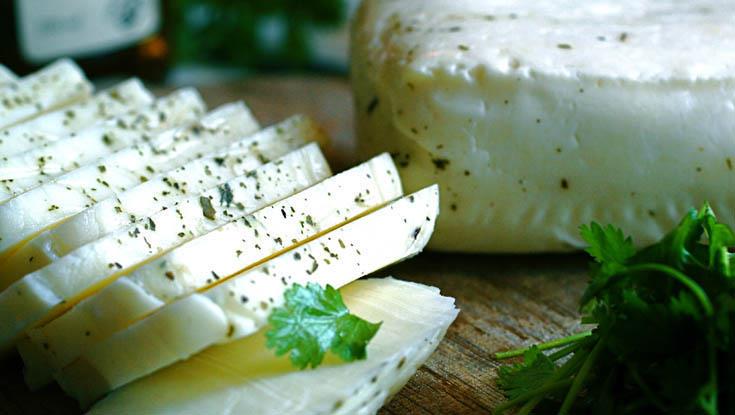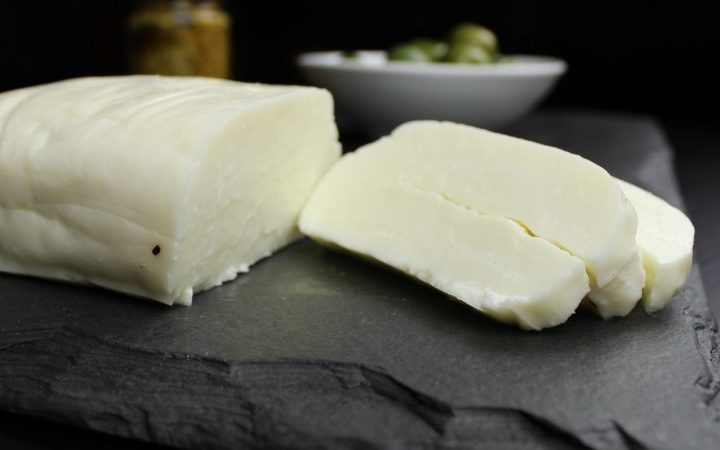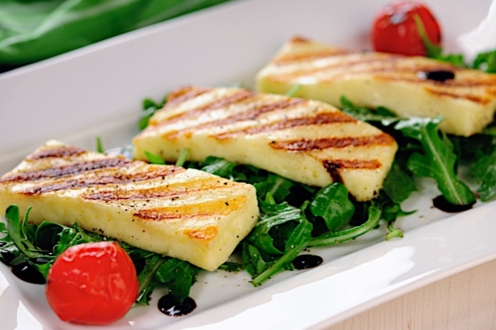Another sorry chapter was added to the Halloumi saga, as cattle farmers, cheesemakers and the government fire at each other, accusing the other side of not sticking to a truce struck last year.
In comments to state radio CyBC on Wednesday, agriculture ministry undersecretary Andreas Gregoriou said the agreement signed by cheesemakers, sheep and goat farmers, and cattle breeders is one step from collapsing.
Gregoriou said that cattle farmers and cheesemakers are “not fully implementing the agreement” to address the thorny issue of milk to goat ratio in the Halloumi mix.
He accused the cheesemakers of not delivering on their commitment to withdraw several lawsuits against the Republic, challenging the squeaky cheese’s recently acquired Product of Designated Origin status.
The ministry is trying to bring the involved parties to the table to sign a new agreement to enforce the original deal.
But cattle farmers and cheesemakers are accusing sheep and goat breeders of falling back, demanding to increase the price of their milk, which was fixed with the July 2022 agreement.
Director of the cattle farmers’ union, Nikos Papakyriacou, said his union sent a letter to the government in February highlighting the issues it had found in applying the agreement.
He said the government has ignored the association’s calls despite this.
He argued that the insistence of an eventual 50-50% split between cow’s milk and goat’s and sheep’s milk in halloumi for the protected designation of origin (PDO) would cause milk to be wasted.
“What should we do with our cows’ milk? Chuck it away?
“That is why a longer transition period is needed regarding the implementation of the PDO and the eventual end composition of halloumi,” said Papakyriacou.
Price rises
In a communication with the Financial Mirror, a source close to the dairy producers defended the industry’s position, arguing that sheep and goat breeders have unjustifiably demanded an almost 40-cent-a-litre increase for their milk.
“In July 2022, the industry agreed to increase the compensation towards goat and sheep breeders from €1.05 a litre to €1.45, taking into account the increase in the cost of animal feed due to the war in Ukraine,” said the source.
“Since then, prices have dropped, with the cost of some animal feed products dropping to half of what it was last year.
“They have no right to demand an increase in the price.”
The same source also argued that the price of halloumi has risen since the EU granted the island’s traditional cheese PDO status in October 2021.
A ceasefire between Halloumi producers and the government was brokered 15 months ago when the sides agreed to resolve the thorny issue of the cow-to-goat and sheep milk ratio once and for all, or so it seemed.
According to the agreement, the Agriculture Ministry had conceded to producers’ demands to postpone the implementation of the PDO milk ratio until 2024.
The PDO file submitted to the EU foresees that goat or sheep milk should exceed 50% by 2024.
After an initial transitional period up to 2024, products may be labelled “halloumi” if they contain at least 10% goat and sheep milk during the ‘low’ season and 25% during the ‘high’ season.
The low season is from February to August.
For the rest of the year, the ratio is set at a minimum of 25% goat and sheep milk.
Based on the deal, the ratio will be increased by 5% and added to the 25% every year until the 50% level is reached in 2029.
The PDO file submitted in 2014 says goat’s milk should by 2024 exceed cow’s milk, reaching a minimum of 51%, produced from specific Cypriot breeds of goats and sheep.
This clause on the white cheese’s milk ratio is the biggest thorn between authorities and cheesemakers who fear the loss of halloumi exports.
Cheesemakers claim they could make halloumi under the EU Trademark, bypassing the milk ratio criteria and legally challenging the Republic over the PDO file.
Other stakeholders are the goat and sheep breeders who have protested the non-implementation of the PDO file by dairy producers, which means their milk is left unsold.
They criticised the government for not carrying out the necessary checks.
Breeders argue their livelihood is at stake with dairy producers not conforming to the PDO.
Around €284 mln is generated by halloumi exports annually; from 2017 to 2021, total exports yielded €1.34 bln.










